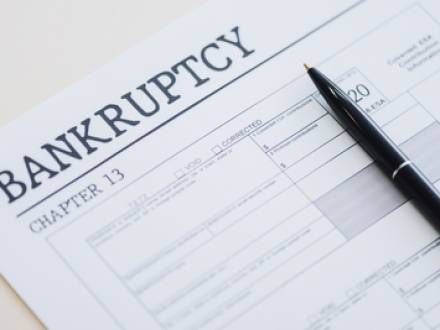The Little-Known "Super Discharge" in Texas Chapter 13 Cases
 Many people consider Chapter 7 bankruptcy as the easiest, fastest way to eliminate debt. Fewer people are aware that Chapter 13 bankruptcy can sometimes wipe out a wider range of debt under an expanded discharge, known as the "Super Discharge." Under certain conditions, Chapter 13 bankruptcy can eliminate many of the obligations that survive Chapter 7, including some divorce-related payments, older tax debts, and even penalties tied to willful property damage.
Many people consider Chapter 7 bankruptcy as the easiest, fastest way to eliminate debt. Fewer people are aware that Chapter 13 bankruptcy can sometimes wipe out a wider range of debt under an expanded discharge, known as the "Super Discharge." Under certain conditions, Chapter 13 bankruptcy can eliminate many of the obligations that survive Chapter 7, including some divorce-related payments, older tax debts, and even penalties tied to willful property damage.
Small business owners, families, and individuals caught between unmanageable debt and repayment demands should consider this often-overlooked feature of Chapter 13, which can, in many cases, serve as a financial lifeline. To determine whether you are eligible for a Chapter 13 super discharge, speak to an experienced Fort Worth, TX Chapter 13 bankruptcy lawyer.
What Is Chapter 13 "Super Discharge?"
A Chapter 13 super discharge refers to a set of debts that can be discharged or erased in a Chapter 13 bankruptcy case, as compared to a Chapter 7 bankruptcy case. The three-to-five-year repayment plan required in Chapter 13 must be completed to qualify for the elimination of this wider array of debts. Some debts, such as federal tax debt and debts resulting from malicious injury or fraud, are non-dischargeable under Chapter 7, but may be dischargeable under a Chapter 13 super discharge.
What Debts Could Be Dischargeable Under a Super Discharge?
The debts that may be dischargeable under a super discharge that are not dischargeable under Chapter 7 bankruptcy include:
- Property settlements from divorce that are not considered alimony or child support.
- Equalization payments that were ordered during a divorce.
- Debts from a prior Chapter 7 bankruptcy filing that were not discharged.
- Some older tax debts and fines (older than five years if filed properly and without fraud).
- Debts from a willful and malicious injury if a judgment has not yet been entered.
- Some government fines, traffic penalties, and toll violations.
- Child support, alimony, and criminal restitution debts remain non-dischargeable.
What Are the Eligibility Requirements for a Super Discharge?
Debtors must meet several key requirements at the end of their Chapter 13 repayment plan, including making all payments agreed upon in the court-approved plan successfully. The debtor must certify that he or she has paid all domestic support obligations (child support and alimony) from before and after the bankruptcy filing. The debtor must also complete an approved course in personal financial management to qualify for a super discharge.
What Are the Differences Between a Super Discharge and a Hardship Discharge?
Under 11 U.S.C. Section 1328(b), some debtors may qualify for a hardship discharge if they are unable to complete their Chapter 13 repayment plan. Under a super discharge, the repayment plan is completed. A hardship discharge is more difficult to obtain, requiring a motion to the court that shows:
- The failure to complete the payment plan is due to circumstances beyond the debtor’s control, such as a significant illness, accident, or job loss.
- The creditors have already received as much as they would have under Chapter 7 bankruptcy.
- Modifying the repayment plan is not practical.
A hardship discharge is more limited than a super discharge and does not erase any of the debts that are non-dischargeable under Chapter 7.
Contact a Wise County, TX Bankruptcy Lawyer
If you have been told that bankruptcy cannot erase certain debts, you may be surprised to learn that super discharge could erase at least some of those debts. Experienced bankruptcy counsel is essential in identifying the debts that a Chapter 13 bankruptcy with a super discharge at the end could eliminate.
The rules for super discharge can be complex, and creditors may fight to keep debts alive, so it is extremely important to consult with a knowledgeable Fort Worth, TX Chapter 13 bankruptcy attorney from Acker Warren P.C.. You will always speak with an attorney, rather than a paralegal. We offer a fast turnaround and can complete a case virtually when necessary. To schedule your free consultation, call 817-752-9033.









